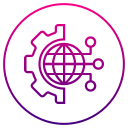Data, Ethics, and Governance
Techniques like on-device processing, data minimization, and differential privacy reduce exposure while preserving insights. Which safeguards would make you comfortable? Share your expectations and subscribe for sample policies cities can adapt quickly.
Data, Ethics, and Governance
Impact assessments, bias tests, and model cards clarify how systems perform across neighborhoods and demographics. Should audits be public by default? Tell us why, and join our list to receive an accountability checklist for procurement.






